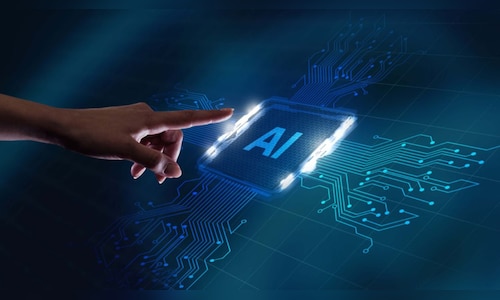Diana Siew, Strategic Relationship Manager at ABI, noted that AI is particularly effective in healthcare education. “There’s significant potential in using AI within simulation and virtual reality environments,” she explained, highlighting how these technologies create immersive experiences for healthcare professionals. These span from basic tasks like catheter insertion to intricate surgical planning.
One of the forefront applications is being developed by New Zealand startup Formus Labs. The company has streamlined the traditionally laborious task of surgical planning for joint replacements. “Formus has cut down days of engineering and hours of surgeon time,” remarked CEO Dr. Ju Zhang, referring to the AI software that produces tailored surgical plans based on patient CT scans. After completing over 3,000 surgeries in Australia, Formus is now looking to expand into the US and Asia-Pacific, including pilot trials in India.
Also read: Replacing human with AI is easy, but is it good for the company?
At the same time, AI is facilitating the transition of diagnostics from clinical settings to more accessible locations. Toku Eyes, co-founded by Dr. Ehsan Vaghefi, employs AI to analyze retinal images for early indications of chronic illnesses. “This non-invasive approach can uncover early signs of health issues such as cardiovascular disease and chronic kidney disease by detecting minor changes in retinal blood vessels,” Vaghefi stated. Toku’s tools are designed for large-scale use, particularly in underserved regions, with the company having secured \$13 million to aid its expansion into North America.
Siew mentioned that ABI’s research prioritizes diagnostic assistance and digital tools for patient self-management. A significant initiative is DINA—Digital Interactive Navigator Assistant—being developed to assist individuals in managing chronic conditions like diabetes. “DINA can integrate with wearables to gather biometrics, activity, and blood sugar levels,” she added, noting that the system can be tailored to meet cultural needs and promote engagement within specific communities.
Also read: ‘AI isn’t overhyped—it’s underhyped’: Prosus CEO on betting big, building bold
These innovations are backed by established international partnerships. ABI is recognized globally for its contributions to computational physiology, particularly in the creation of digital humans—detailed simulations of human biology based on mathematical models. Led by Distinguished Professor Sir Peter Hunter, the digital human project has received funding from Horizon Europe, the NIH, and the New Zealand government, forming a foundation for future digital twin technologies targeting precision health.
Nonetheless, the integration of AI in healthcare introduces new challenges, particularly regarding data integrity and evolving algorithms. “Transparency regarding training and validation datasets is crucial,” Siew emphasized, noting that AI tools must mirror the populations they serve. Solutions that continue to learn post-deployment require vigilant monitoring to maintain their accuracy and safety. Currently, most regulators only permit the use of “locked” algorithms in clinical environments—those that remain unchanged without additional regulatory approval.
While New Zealand’s AI healthcare ecosystem is still developing, its dedication to personalized, accessible, and culturally responsive solutions is already capturing global interest. With researchers, startups, and institutions collaborating, the country is positioning itself as a testing ground for next-generation healthcare innovation.
Also read: India emerges as AI patent powerhouse, faces challenges in quality and approval timelines



